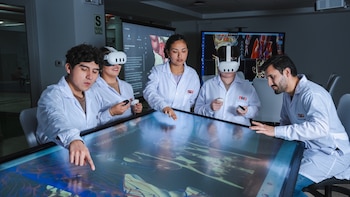
By Michael Pirrie
(ATR)Just when we were resigned to almost empty stadiums, the 2021 Australian Open took sport on a nostalgic journey to a time when spectators and players could safely attend and participate at major sporting events.
After a year of ghost games behind closed gates and shuttered stadia, the first Grand Slam of the year offered some reassuringly familiar sights and sounds.
Cardboard cut outs of fans and simulated applause were replaced by real spectators and cheering crowds, along with socially distant queues for food and alcohol, bands and merchandise stands.
There were many top shelf performances in the Rod Laver Arena but the biggest victory was the presence of fans back in the stands - and no COVID cases amongst players or spectators during the tournament.
"It's good to see people again," the winner of the women's tournament, Naomi Osaka, said, beaming up at the crowds after her first round win.
The biosecurity measures that helped to make crowds possible again have been closely monitored during the Melbourne tournament by major event committees worldwide. These included organizers of Wimbledon and Tokyo Olympics, both of which could not be staged last year due to the pandemic.
The return of fans for the AO finals - capped at 50 percent for safety after containment of the highly transmissible UK variant - marked another step in sport's fragile recovery from COVID.
The safety of major sporting events has been particularly sensitive in Melbourne after residents sacrificed their freedom for several months last year to suppress the virus in one of the world’s longest and most restrictive home based lockdowns.
As a result there were concerns among local communities that major international events could lead to further COVID outbreaks and more city and state-wide lockdowns and border closures.
This opposition prompted fears that international governing bodies and sponsors may bypass host cities that impose restrictions considered too burdensome for visiting players, teams, support staff, officials and other stakeholders.
The Victoria State Government has constantly emphasized that public safety is non-negotiable in the fight against COVID: that a game of golf (or tennis) is not worth a life.
The government defended its decision to play the tennis Grand Slam, ahead of Australia's national vaccine roll out, arguing the necessary safeguards were in place to protect the public.
Those tensions were on display during the AO men's final presentation ceremony when references to the roll out of vaccines worldwide as a sign of hope drew jeers from a group of protestors inside the stadium.
Much was riding on the success of the AO protocols politically, for public health, and for the immediate future of major international sporting events. Australian organizers and government ministers had promised the safest and most secure sporting event of the COVID era.
Meticulous planning by Tennis Australia and the Victorian Government involving quarantine, extensive testing, contact tracing and social distancing, appear to have prevented any infection at the tournament or warm up events. The AO's comprehensive health checks also prevented possible infection cross over between the general community and tennis players and officials.
Despite its success, the AO's stringent anti COVID operation might not be able to be upscaled to the levels required for the Tokyo Games. But the principles underlying the success of the Australian Open show that the best way sport can respond to COVID is a public health response.
It’s a response that can be applied to all major international events, including the Tokyo Olympics.
Michael Pirrie, who led the global media campaign for the British Government's successful bid for the London 2012 Olympic Games, is a communications advisor and commentator on major international events.
Homepage photo: Australian Open
Últimas Noticias
Utah’s Olympic venues an integral part of the equation as Salt Lake City seeks a Winter Games encore
Utah Olympic Legacy Foundation chief of sport development Luke Bodensteiner says there is a “real urgency to make this happen in 2030”. He discusses the mission of the non-profit organization, the legacy from the 2002 Winter Games and future ambitions.

IOC president tells Olympic Movement “we will again have safe and secure Olympic Games” in Beijing
Thomas Bach, in an open letter on Friday, also thanked stakeholders for their “unprecedented” efforts to make Tokyo 2020 a success despite the pandemic.

Boxing’s place in the Olympics remains in peril as IOC still unhappy with the state of AIBA’s reform efforts
The IOC says issues concerning governance, finance, and refereeing and judging must be sorted out to its satisfaction. AIBA says it’s confident that will happen and the federation will be reinstated.

IOC president details Olympic community efforts to get Afghans out of danger after Taliban return to power
Thomas Bach says the Afghanistan NOC remains under IOC recognition, noting that the current leadership was democratically elected in 2019. But he says the IOC will be monitoring what happens in the future. The story had been revealed on August 31 in an article by Miguel Hernandez in Around the Rings

North Korea suspended by IOC for failing to participate in Tokyo though its athletes could still take part in Beijing 2022
Playbooks for Beijing 2022 will ”most likely” be released in October, according to IOC President Thomas Bach.




